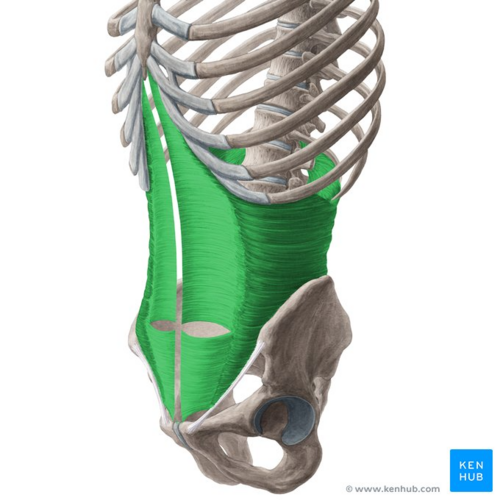In the early centuries, a corset was typically worn as a supportive undergarment that improved posture, supported the spine, and shaped the body into what was then called “ideal proportions.” While corsets used to come in many shapes, sizes, and colors – in today’s world the most important “corset” goes by a single name – the Transverse Abdominis (TrA).
The TrA is the deepest of the abdominal muscles and acts a girdle around the spine. The TrA responds most to perturbational movement and is the only abdominal muscle that remains activated with resisted extension in the spine (resisted extension often comes with exercises such as lifting a box incorrectly, deadlifts, and a quick jerking motion backwards). The TrA is the first stabilizer that kicks in with any arm/leg movements, and as a result helps limit your risk for injuries. It also aids in stabilizing each bone in your spine; so without this muscle, your spine would just be dancing around, pinching on nerves, and collapsing (almost).
The take home here is… the TrA is very important! You need this muscle to assist in stabilizing the spine and when it doesn’t do its job… you end up with back pain. The TrA is difficult to control. It doesn’t work like the 6-pack abs you’re used to. Try activating your TrA to reduce your risk of low back pain, improve your core and back stabilization, and reduce your risk for injury.

